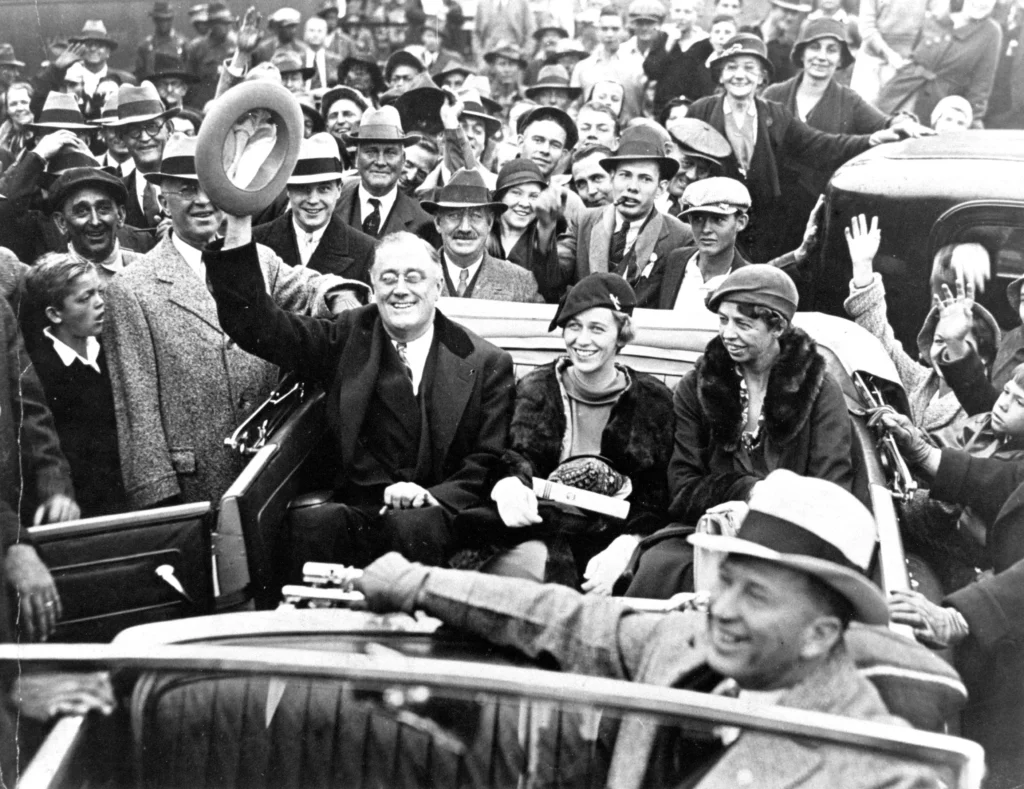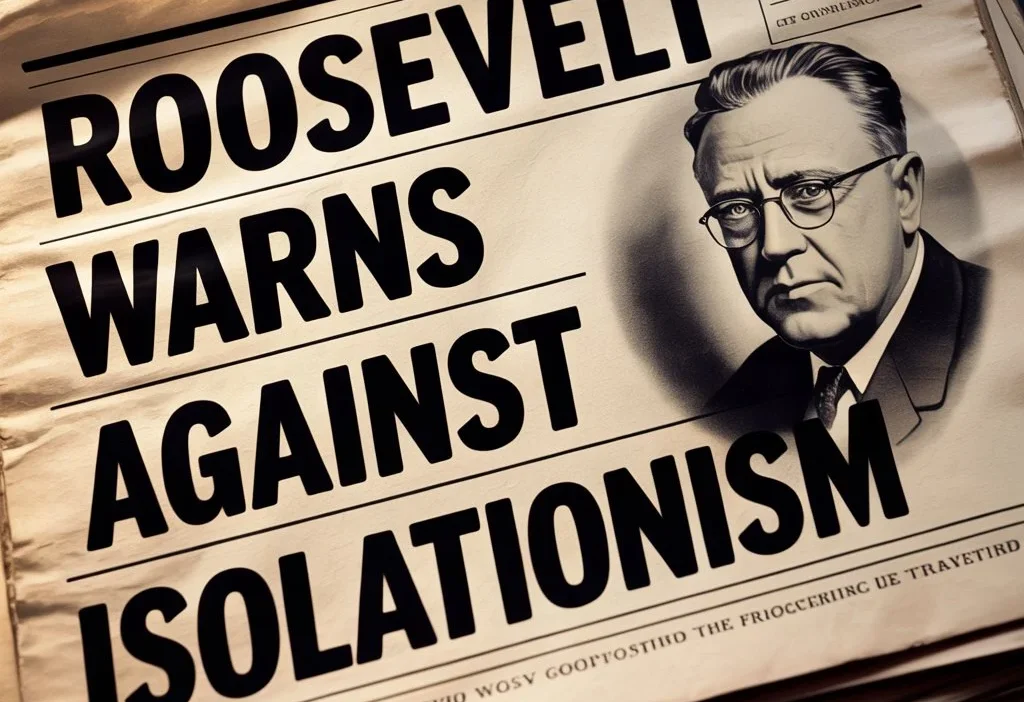In the early 20th century, America’s role in global affairs was evolving. Many people feared that getting involved in international matters would bring unnecessary conflict.
But Franklin D. Roosevelt had a very different view. Roosevelt understood that isolationism—keeping the United States separate from world events—wasn’t the answer. He believed that the U.S. had a responsibility to play an active role in the global community.
So, what did Roosevelt have to say about attempts to isolate the U.S. from the rest of the world? Let’s take a closer look at Roosevelt’s views on this important issue and how his leadership shaped America’s foreign policy.
1. Roosevelt’s Stance Against Isolationism
Roosevelt’s presidency came during a time when many Americans wanted to avoid entangling the U.S. in foreign conflicts. After World War I, isolationist sentiment grew, but Roosevelt felt differently. He knew that the world was changing and that isolation wouldn’t protect America from future threats.
Example:
In his Fireside Chats, Roosevelt repeatedly emphasized the importance of global cooperation, warning against the dangers of isolationism. He argued that staying out of world issues would ultimately harm the country and its values.
2. Roosevelt’s “Arsenal of Democracy” Speech
One of Roosevelt’s most famous speeches on isolationism came during World War II, in his “Arsenal of Democracy” speech in December 1940. In it, he made it clear that the United States should not stand by while tyrannical regimes threatened the world.
Example:
He said, “We must be the great arsenal of democracy. For us, this is an emergency as serious as war itself.”

🔑 This highlighted his belief that isolating the U.S. would be a grave mistake, especially when facing fascist powers abroad.
3. Roosevelt’s Four Freedoms Speech
Another key moment came in Roosevelt’s “Four Freedoms” speech in 1941. In this speech, he laid out his vision for a post-war world, focusing on the importance of global freedom of speech, freedom of worship, freedom from want, and freedom from fear.
Example:
Roosevelt said, “The future days are not those of isolated nations, but those of united peoples, dedicated to peace, freedom, and opportunity for all.”
🌍 Roosevelt was clear that the United States had a duty to help shape the future by actively participating in global issues.
4. The Dangers of Isolationism: Roosevelt’s Warnings
Roosevelt warned that isolationism would not only weaken the U.S. but also encourage global instability. If the U.S. failed to step up and support democracy, he believed the world would become a much more dangerous place.
Example:
In a 1937 speech, Roosevelt warned: “The only thing we have to fear is fear itself”, referring to the growing global tensions and the potential for world war.
🚨 Roosevelt understood that isolationism would leave the U.S. vulnerable to future conflicts, and he called for a united, collective response to international problems.
5. Roosevelt’s Role in the Formation of the United Nations
After World War II, Roosevelt’s vision came to life in the formation of the United Nations (UN), an international organization aimed at promoting peace and cooperation between nations.
Example:
He believed that the U.S. had to be at the center of global decision-making. His leadership played a major role in creating the UN, which was designed to prevent further wars and foster international collaboration.
🌎 Roosevelt’s commitment to internationalism ensured that the U.S. would no longer be isolated but actively engaged in shaping the future.
6. Roosevelt and the Good Neighbor Policy
Roosevelt also promoted the Good Neighbor Policy, which sought to strengthen relationships with countries in Latin America, moving away from the U.S.’s past history of interventionism. By focusing on cooperation, Roosevelt hoped to create a peaceful and stable hemisphere.
Example:
In 1933, Roosevelt declared, “In the field of world policy, I would dedicate this nation to the policy of the good neighbor.”
🌟 This policy showed that Roosevelt valued partnership and dialogue, especially with countries in the Western Hemisphere, rather than isolation.
7. The Shift from Isolationism to Internationalism
Roosevelt’s leadership marked a shift in U.S. foreign policy, from a nation focused on avoiding international entanglements to a country that recognized its responsibility on the world stage. His speeches and actions helped steer the U.S. away from isolationism and towards a more internationalist approach—a path that would shape American diplomacy for years to come.
Final Thoughts
Franklin D. Roosevelt’s message was clear: isolationism was not the solution to America’s challenges. By actively engaging with the world, the U.S. could help promote peace, democracy, and freedom across the globe.
Roosevelt’s policies, speeches, and leadership during his presidency paved the way for a new era of global cooperation. His vision of an interconnected world continues to influence U.S. foreign policy today.




